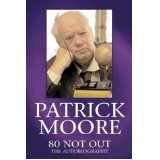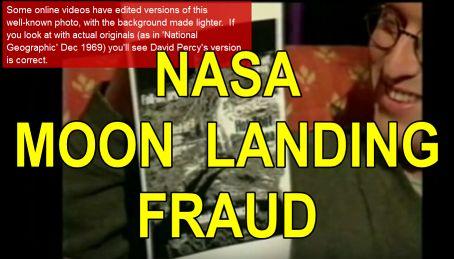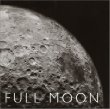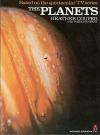 Review of
How the Media Handle Science and Fraud
Patrick Moore: 80 Not Out—The Autobiography
Review of
How the Media Handle Science and Fraud
Patrick Moore: 80 Not Out—The Autobiography The Sleep of Reason Brings Forth ... Schoolboys
The Sleep of Reason Brings Forth ... SchoolboysPatrick Moore's 80 Not Out—The Autobiography (Hardback 2003). The US edition is called The Autobiography omitting the cricket reference.
Up to age 30 As people age, their memory for the remote past grows clearer than their present, because new things made the past more memorable than their established way of life. Perhaps. Moore's Autobiography is consistent with that idea: up to about age 30 (1923 to about 1954) he gives a straightforward rather ingenuous autobiographical account. Moore belonged to the world of minor public schools, with fathers doing what they were told was their patriotic duty, and wives dabbling in what they were told was artistic activity. It suited Moore. He was untroubled by the 'Great Depression'; he just about participated in the Second World War, in the air. A young Englishwoman friend died in a bombing raid, and ever after Moore thought all Germans should die - most English people to this day have no idea about the manipulations behind the Second World War: only towards the end of his life was he aware things weren't quite what they seemed.
[Mid-2019: This review had a spike in hits. I'd written the above, and the rest of this review, before bothering to check Moore's origins, but it's clear he was part of the Jewish intrusion into Britain, typically dating from the late 19th century. Probably this explains his anti-German outlook, and the fact of his selective media promotion. And his subservience to Jewish science frauds generally. Sigh. Oh, and the rather frantic faux-support from odd-sounding fellow-travellers; see below for messages. However, I've left the review completely unchanged. Naiveté left exposed!]
He was ill for prolonged periods (and lost all his teeth in some undisclosed way). His upbringing left a permanent set of skills lurking within: piloting light planes, keyboard skills - he specialised in the xylophone, but played the piano; and was proud of a different set of keyboard skills: his 1892 Remington Woodstock typewriter. He claimed considerable self-defence skills, I think some variant of judo, enough to fight off knife-wielding muggers. He wrote poetry, which was on the borderline of doggerel, and operettas, ditto; he knew musical notation and could compose. He played chess (one of his games is listed, but there's at least one typo; the book isn't very well proofread), and he played bridge. And croquet. And especially cricket - Moore was proud of his bowling. He was adamant that he was hopeless at art, and hopeless at acting, except farce. He was ambivalent about languages. He had strong views about foxhunting in the English countryside, and strong views about what he saw as bureaucratic and political incompetence. He had a low opinion of the abilities of women.
Up to age 30 ... his intellectual influences 1898 was the most influential year in Moore's intellectual development. Moore, 'at the age of six', read the then-thirty-ish-year old book The Story of the Solar System by G. F. Chambers. Some numbers - speed of light 186,000 miles per second, sun's diameter 864,000 miles for example - and some names - constellations, planets, such moons as had been discovered - clearly remained part of his mental furniture for life, so much so that he must almost have felt he'd calculated them himself. He understood orbits and planetary rotation and the near-astrological observational detail of planetary conjunctions and oppositions and constellations of stars.
He had little mathematical skill: there's no suggestion he could calculate orbits, or work out dates of eclipses or transits, or handle any other long-established Newtonian tricks. Much less was he able to tackle 'relativity'. So Moore felt no expertise in astrophysics, much of which depends on mathematics - or at least that's the image. This meant that apart from a substrate of knowledge he was dependent on other people's views. This makes for polite and definite television, keeping conflicts and disputes down, but, equally, it may perpetuate mistakes and confusions. Moore was, significantly, adamant that he had no practical skills; this is important, because stargazing and rocketry are entirely separate skills. Thus, at a time when Britain made many optical instruments, Moore barely refers to the hardware.
Moore's rise to fame [What follows omits any consideration of secrecy in promotion]
The second part of Moore's book (roughly speaking - the chapters seem to have been written independently) deals with his period of fame: he had several strokes of luck -
[1] The BBC legally held the television monopoly in Britain; just one black and white channel. Despite their public image of lack of bias, it's clear in retrospect the BBC was just an arm of state propaganda. All their material on the Second World War, Hitler, Stalin, the Cold War and so on was strictly censored. This became increasingly obvious as the Vietnam War continued; in fact no honest person could seriously work for such a dishonest outfit. However, Moore simply had no awareness of any of this.
[2] The BBC needed late night filler material. Piecing together the bits, Moore had joined the British Interplanetary Society (and met Arthur C Clarke) and gave a talk on the moon in 1950, aged 26 or 27. A publisher contacted him; in 1953 his Guide to the Moon was published, written in a few weeks. Moore gives no details beyond this length of time, but it must have been mostly plagiarised - probably from H. Percy Wilkins, F.R.A.S., judging by the foreword.
[3] He was invited onto British TV to take part in a debate on UFOs: invited by the co-author of a 1953 big-selling junk book on flying saucers. Moore must have come across well on TV, facing Dowding, a WW2 bombing type.
[4] As a result, he presented his 1957 The Sky at Night in early 1957. From then on, once every two weeks, (or 'fortnight' since he was English!) the BBC provided him more or less a working life income; the programme was closed in 1992, but reopened three years later, I think. I doubt if it was coincidence that it was stopped after the 'Cold War' officially ended.
1953 Guide to the Moon It's worth making a few points about this book, compiled when Moore was about 30, and now available as a free (but not necessarily accurate) download. The last two chapters deal rather childishly with space voyaging: the two benefits listed by Moore are better astronomy, and health effects due to reduced gravity. He also comments that e.g. Columbus went on adventures, missing out the rather important points of difference. The British Interplanetary Institute (still in the same building in London, SW8) must have been set up as part of the post-war con which appears to have duped JFK. Of science frauds, this was the only one known to me which had adventure as its motive; mostly they relied on money, fear and hate, as in the nuclear weapons fraud, the AIDS fraud, the 9/11 fraud, the climate/carbon fraud, the 'EcoRefugee' fraud. I doubt if Moore ever asked himself who set up the 'Institute'. He certainly asked no detailed questions about the technology needed e.g. for spaceships to refuel on the moon on their way to Mars. Note that photos were already being faked when the mass killer Eisenhower signed NASA into existence in 1958.
Forty years of astronomy
Sputnik later in 1957 suggested that astronomy wasn't just a theoretical subject; Kennedy in 1963 announced the moon project; after his murder, Lyndon Johnson continued the funding of NASA and of wars, probably to direct money to the usual suspects. By 1969 Moore absolutely loved the stuff about Apollo and his BBC studio. He describes the Apollo 17 launch: '.. Seconds later we were hit by what I can only call a wall of sound. It was absolutely deafening, and yet there was an eerie quality... Slowly at first, Apollo moved away ... The Last Men on the Moon (so far) were on their way.' (This passage isn't easy to find: rockets aren't even indexed in his book). Even a mile or two away the sound was deafening; and the risk of explosion was uncomfortably high. Moore seems to have never allowed himself any doubts about NASA.
I may as well add this page Freemasons in Space which looks at corruption in NASA. It might be easier to look for non-corruption.
His TV dealt with the same sort of material as 19th century astronomers, plus of course rocketry and new technology and theory, though I think his material was almost always second-hand. The menu was: comets, eclipses, new theories, and material on the e.g. visibility of Saturn's rings, invisibility of asteroids, the Andromeda nebula, imminent meteor showers. Transits are too rare to provide a staple diet.
Comets, in practice, tend to be disappointing. Solar eclipses, of course, have a long tradition of interest, and Moore recounts jaunts, mostly to equatorial third-world countries, though personally I'd have liked some evidence that they served some purpose, especially as the most famous one ever was subsequently shown to have been a series of disasters. Rockets to other planets provided the opportunity for pictures and excitement; unfortunately doubts about NASA, and the Hubble telescope, cast a pall over all of this.
Moore took on some administrative work: a new observatory in Armagh; he disliked the political atmosphere. Whether he had organisational ability is impossible to know from his account. Later he helped with a new observatory in Chichester in southern England. (With John Mason, who was subsequently also knighted, with good reason). Moore was in and chaired organisations such as the IAU (International Astronomical Organisation) and tried to act against the destruction of the Greenwich Observatory.
Moore's outlook and character
Towards the end of his book, Moore has a miscellany of chapters - comic news headiness, modern silly laws, dislike of the EU, and a section on his contacts with the public - standardised replies to cranks, and to non-cranks. He didn't want to prevent enthusiasts from contacting him.
The social side of astronomy sounds attractive: the diverse people (Brian May, from Queen, Russian rocketeers, a railway porter, an elderly observer, a 14-year old, Astronomer Royal, appearances by Orville Wright and 'astronauts'...) all seem on terms of amiable equality. Moore liked clubs, for example cricket clubs, where skills with bat, ball, and in catching, running, and throwing, dominate other unimportant concerns. Gardening and horticulture can be similar, and chess and music. This is idealised, of course. Various highly competent mavericks - Peter Sartory, who observed activity on the moon; Halton Arp, who doubted the 'big bang' and expanding universe - were both cold shouldered by their peers.
Moore accepted some deception in broadcasting (this of course happens in all publishing; who can tell whether manufactured pop singers can sing, or politicians can write?) He was annoyed that a programme on Halley's comet was made a hash of; he didn't seem able to announce: this is experimental and tricky, but we'll do our best. He was amused when he was asked to read out, from an autocue, remarks on a subject he knew nothing about, and found many people treated him as an authority. He was annoyed when two guests changed places between some inserted material. James Burke was a similar type (Moore says he had a degree in Italian). The last time I checked the BBC science boss had a degree in English!
Science Moore, by the time his autobiography was published, became aware that moon landing sceptics existed. He disliked this (and I'd guess NASA was pathetically grateful). But he had no refutations at all. I'm afraid that, outside the eternal truths of astronomy, he was just another useful idiot.
Here's a link to a 1999 Channel 4 TV British moon sceptics broadcast

broadcast, was in five parts. This had been on Bitchute, but Ray Vahey, with his Jewish money, took down my site. (He's believed to co-operate with part of the (((British))) Army working on disinformation). Anyway, it's correct on 11 June 2021. (Open it in a new window).

[Following two links improved - Aug 2021]
And my short review of Chaikin's Full Moon a coffee table book.
 And Couper & Henbest on The Planets another coffee-table book.
And Couper & Henbest on The Planets another coffee-table book.
Post mortem Since writing this I noticed the BBC is promoting a hack book jointly authored by Moore, Brian May, and a charisma-free physicist with a Cambridge joke degree. The BBC is not of course supposed to advertise—but where powerful interests are involved this principle is always ignored. Brian May is in the position of famous violinists once—lionised by pushy hangers-on wanting a bit of reflected light, like bits of desiccated dark moon's surface. May seems to be on good terms even with Aldrin, the pugnacious moron and joke. Wouldn't it be nice to see a mockup of the moon—large vacuum chamber, completely dry, heaters in the roof simulating the sun's radiation, walls cooled with (say) liquid nitrogen to simulate space unshielded by our atmosphere, with Aldrin in his 'space suit' clambering into his tiny 'module' to eat, drink, whatever; maybe look at some Hubble telescope watercolours, or maybe show how to take off a space-suit and discard it on the moon. A nicely-updated gladiatorial show.
Queen missed out on science revisionism; poor Freddie Mercury died, supposedly of 'AIDS', but as any US person involved in that money-making industry could have told them, of spurious virological treatments. I've just watched a TV thing with May and the drummer discussing the film of Bohemian Rhapsody: all the royalties went to the 'Terrence Higgins Trust'! A successful Jewish fraud—kill them and get them to pay for bogus research! We prey, you pay! One of the downsides of fame and (presumably) wealth is the problem of brushing-off or secretly evading current errors. A website hunt shows May opposes a suggested UK badger cull. Biological science since the 1950s has been damaged by mistakes around electron microscopy, and other techniques, which have been misapplied; the science of TB is therefore not known properly. Unfortunately DEFRA officials hide their ignorance better, as the BSE/organophosphate debacle proved, so May isn't likely to be comparatively convincing on the science side. Maybe John Deacon, who seems to keep out, knows better.
Here are a few worryingly stupid comments from Amazon readers mostly Jan 2013; what is it about these people that makes them unable to understand important issues? Most of my replies omitted here–
M says: This review is sheer scathing ignorance - a determined effort to belittle a man of great intelligence and humility. The effort has failed.
Reply-Perhaps you'd be so good as to post examples of my scathing ignorance? I'd be so grateful. It's always amusing to collect examples of stupidity.
G. Heron says: This is a pathetic attack on a wonderful man. However anyone taking the time to review your other reviews will see that you have an unhealthy obsession with Jews which you display at every opportunity. I don't mind people leaving negative reviews of any book but the review should be about the book and not be used as a soapbox for your personal bigotry.
John Brain says: Whatever else you think of Patrick Moore, one thing is abundantly clear. He was a generous and kind-hearted man who helped and gave pleasure to many many people. You will not find much evidence of this in his autobiography, since he was clearly a modest self-effacing man. I never met the man, so how do I know this? By the very many unsolicited and spontaneous personal tributes paid to Patrick on a website set up for the purpose. (www.banguniverse.com/sirpatrickmoore), by those young and old, who knew him and by those many more who were inspired by him.
In the light of such evidence, how then can a reviewer write, of a book written over a decade ago, yet of its author who died just a fortnight before the review was written, that he was "... just another useful idiot"'
Reply- Are you the novelist? Just curious. He was part of a massive fraud. And he was kind to his mum. I find your inability to understand the relative importance of these things 'offensive' - not that it matters.
Amazon Customer says: It's folks like yourself who automatically, and indeed willfully follow their own confirmation bias... I dare say I understand the world a lot better than yourself.
The truth is, there's little difference between what you're claiming, and what the likes of creationists churn out... assumptions, rumor, conjecture... essentially whatever you think "feels" right.
That's not how the world works... that's not what got us where we are today. I appreciate that you have the right to believe whatever you wish... but I too have the right to tell you that it's BS... It's a standard case of rejecting reality and substituting your own...
And another thing... Patrick was never paid by the BBC. He did it free... his earnings came mainly from his books. Perhaps you should read some of his astronomy books... Then you'd see how knowledgeable he was.
Doubts about NASA? Oh come on... you're not serious are you?
Marcus Fabius says: This "reviewer" has more chips on his shoulders than a bag of McCains. He had an ENORMOUS number of fatuous reviews with an inconsistent, hypocritical style that defies belief. He seems to have nothing better to do than post vitriolic abuse on whatever takes his fancy. He purports to demand justification of assertions made by his victims, yet he dishes out his own brand of unsupported vitriol throughout his reviews. Referring to Patrick Moore as a "useful idiot" is so typical. It is just this kind of verbal abuse that gives the internet its bad reputation. And of course, Rerevisionist will feel obliged to reply scathingly to my comments. It's easy to anticipate what shallow-minded people will do. Go on, Rerevisionist' show us how shallow you really are.
cloudcatcher Fells says: I'm not stupid at all, you're rude and arrogant. You're delusional as well, the only aspect of your 'review' (underserved personal attack!) that is 'first class' is your obvious utter contempt and belittlement of a figure far, far greater than you! Just get and crawl back under the large dirty stone you regretfully came from! Nothing you say is worth a penny nor of any merit or use to mankind, so don't bother! I'm only bothering some more with you because of your lack of respect to a humble and great man, who was an inspiration to me and to many, many more ordinary people who love to look to the stars ..... I'd say you should be ashamed of yourself but I doubt you really know the meaning of the word, nor own an ounce of humility! You know what you really are 'Rerevisionist', you are a true idiot!!!